l'Univers(i)té
« previous post | next post »
In a comment on yesterday's post ("High vowel lenition/devoicing in French"), carveuir wrote:
Ha! As a final-year undergraduate in 2015, I mentioned having come across devoicing of the second /i/ in "université" to my French linguistics tutor and he didn't believe me. Finally I've been vindicated.
My impression is that this is common and perhaps almost categorical in Québecois vernacular, but more gradient (or maybe I should say less complete?) in Parisian French. So I looked from some examples of the word université in a collection of transcribed radio broadcasts and political speeches from France. And I found a few, all of which were consistent with my impression. So my recent series of French phonetic anecdotes continues below.
Here's the first example I found:
dans le domaine de l'université
in the sector of the university
In the waveform plot below, I've circles the syllables /ni/ and /si/ in université. And comparing the performance of second /i/ with that of the first one, we see that it's partly devoiced (in its second half):
The preceding [s] is also somewhat lengthened (about 160 msec.), suggesting that there's some overlap/assimilation with the following vowel, whose voiced part is rather short (about 70 msec.).
The F0 of the voiced part of that second /i/ is pretty much at the same level as that of the first one:
However, the overall amplitude (which is dominated by the lower, more "sonorant" frequencies, given the overall 1/F spectral slope of voiced speech) is much lower — the syllabic maximum in the second /i/ is at 70.55 dB compared to 80.54 dB in the first one:
And as we would expect, the second /i/'s spectral balance is strongly tilted towards higher frequencies, even in the fully voiced part (due to the weaker voicing and perhaps greater noise intrusion):
| First /i/ | Second /i/ | |
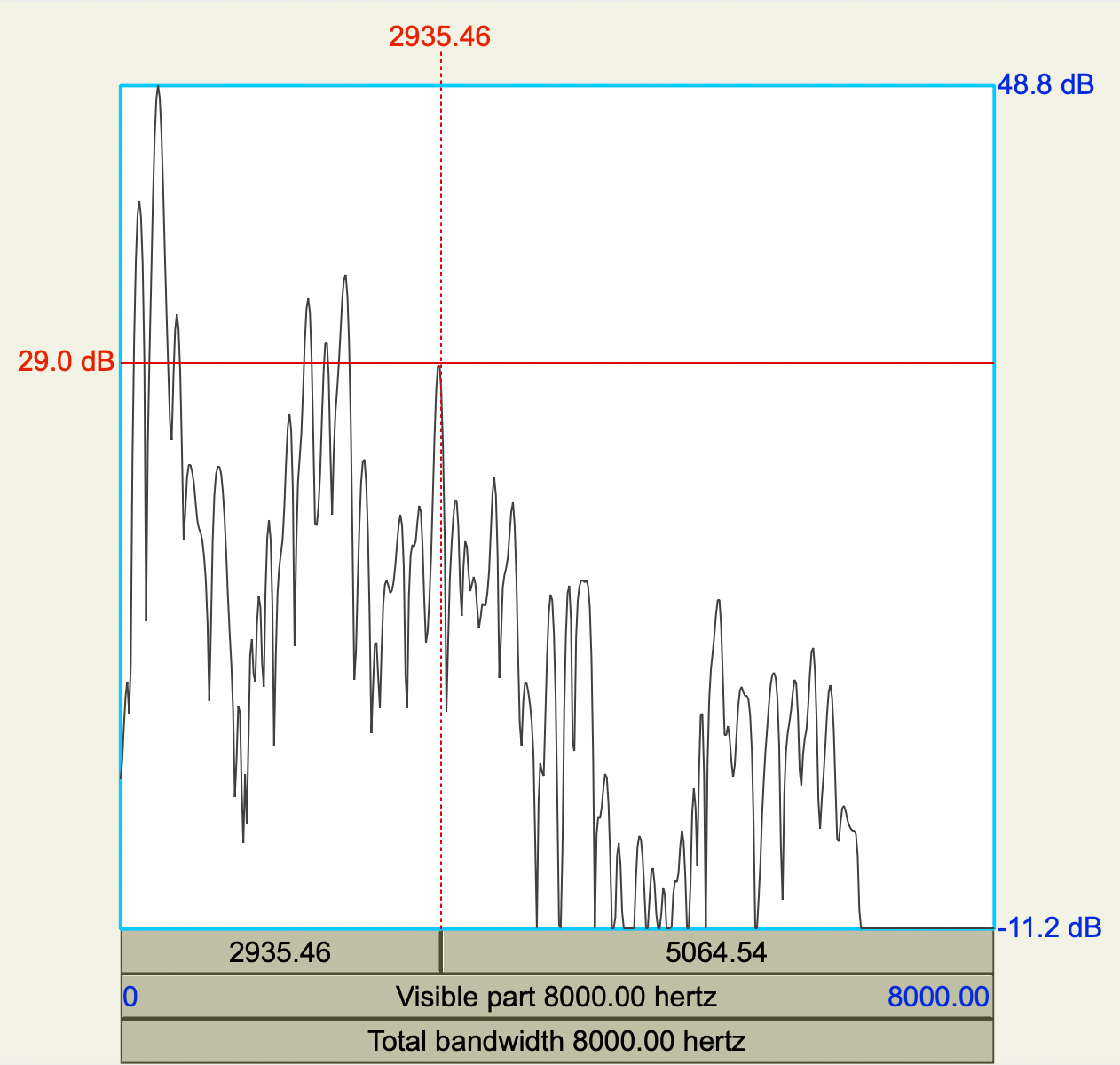 |
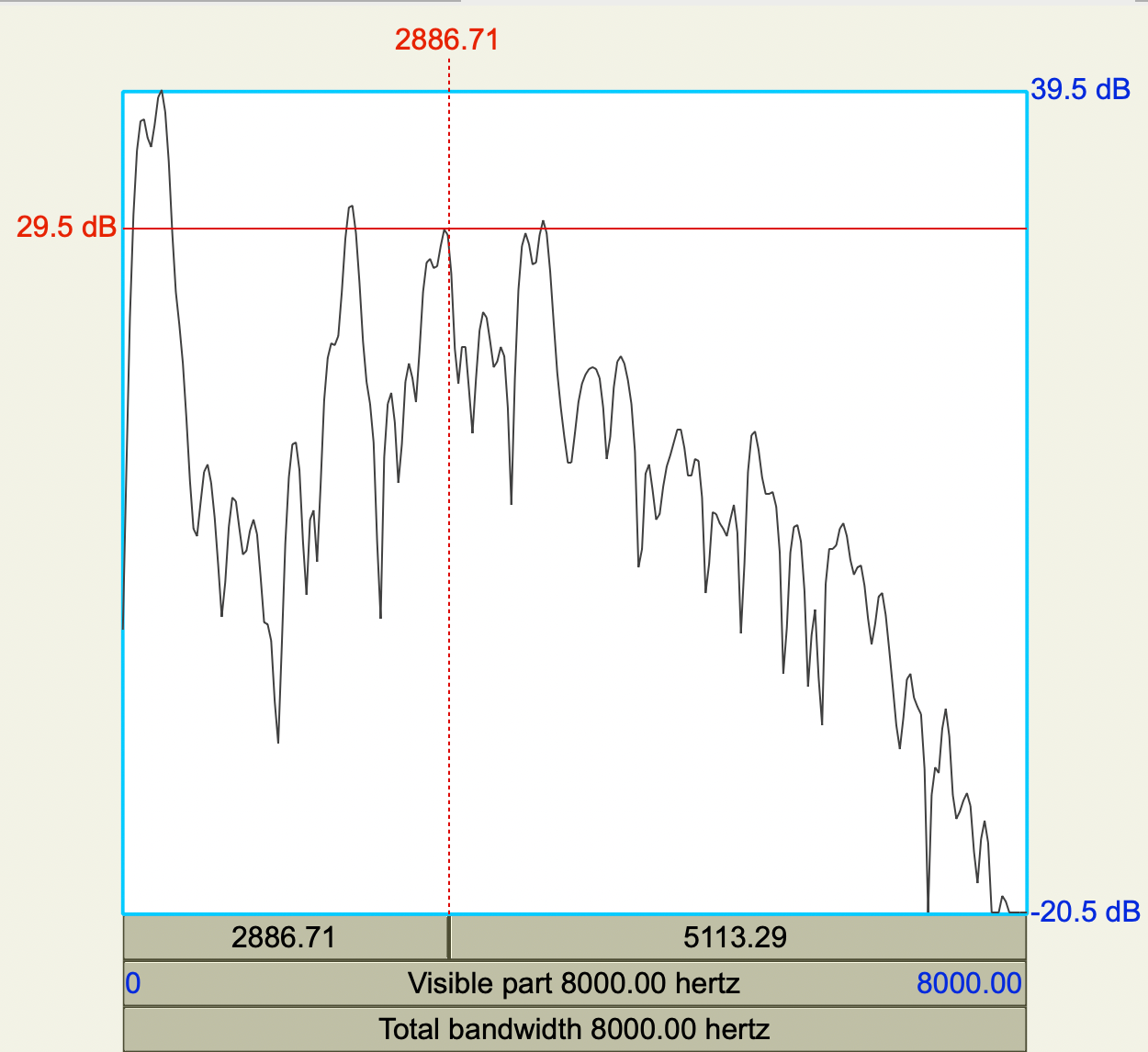 |
No doubt that whole vowel might sometimes be entirely devoiced in faster and less formal speech, especially with less vocal effort — thus completing carveuir's vindication.
[Note that by "Parisian" French I just mean the more-or-less standard variety used by radio personalities and national politicians — more subtle accent variations are outside my perceptual orbit…]
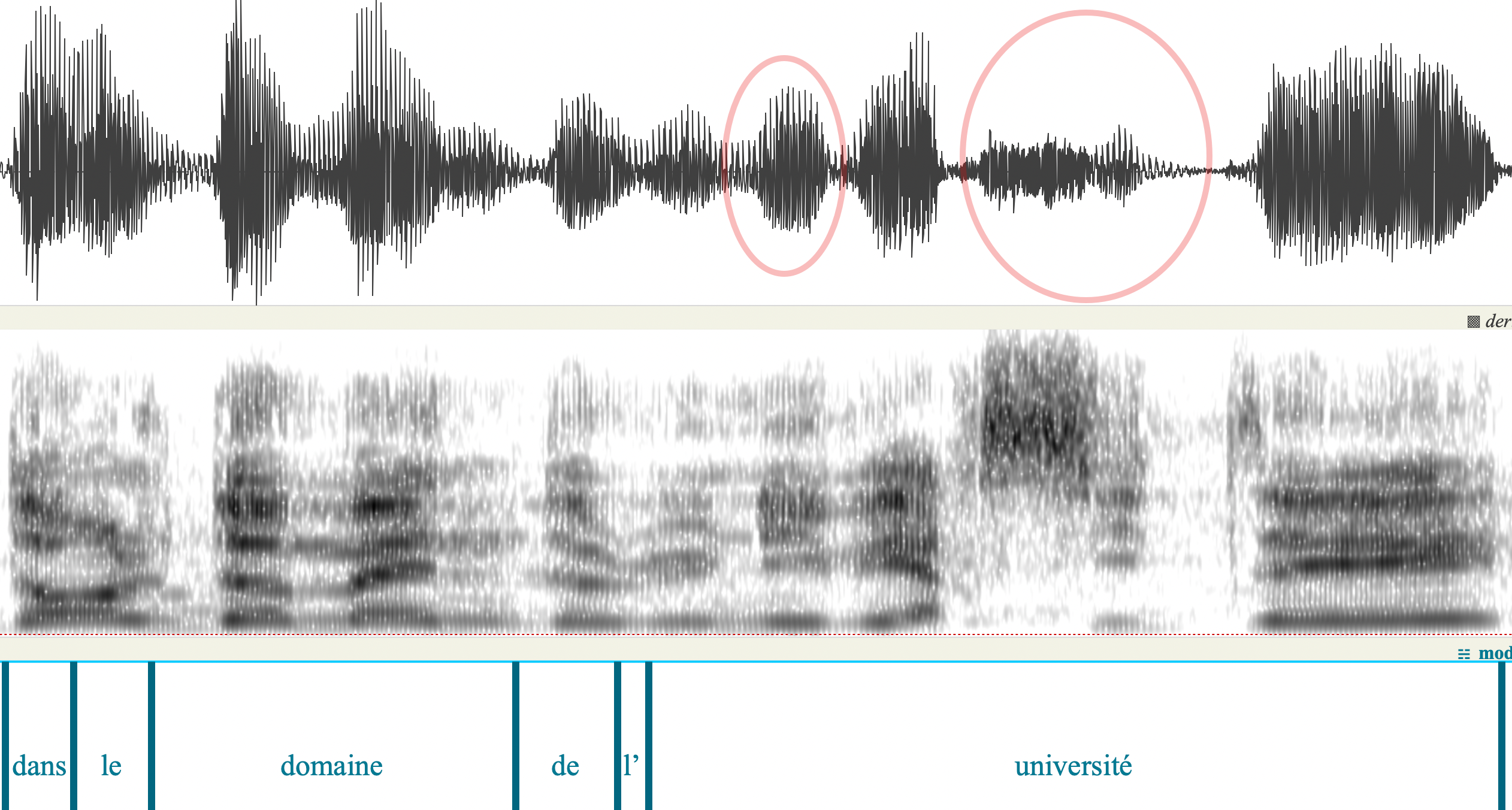
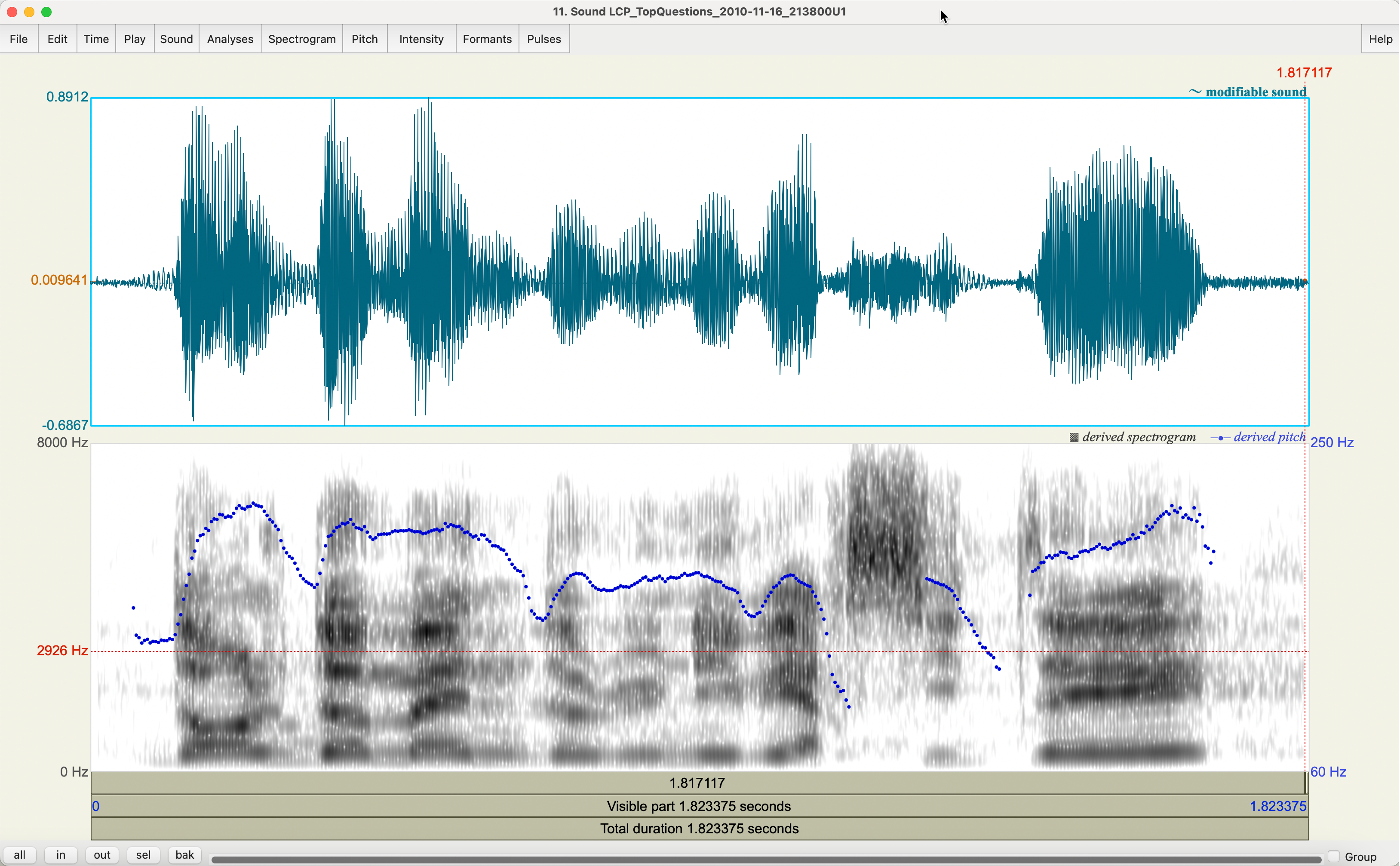
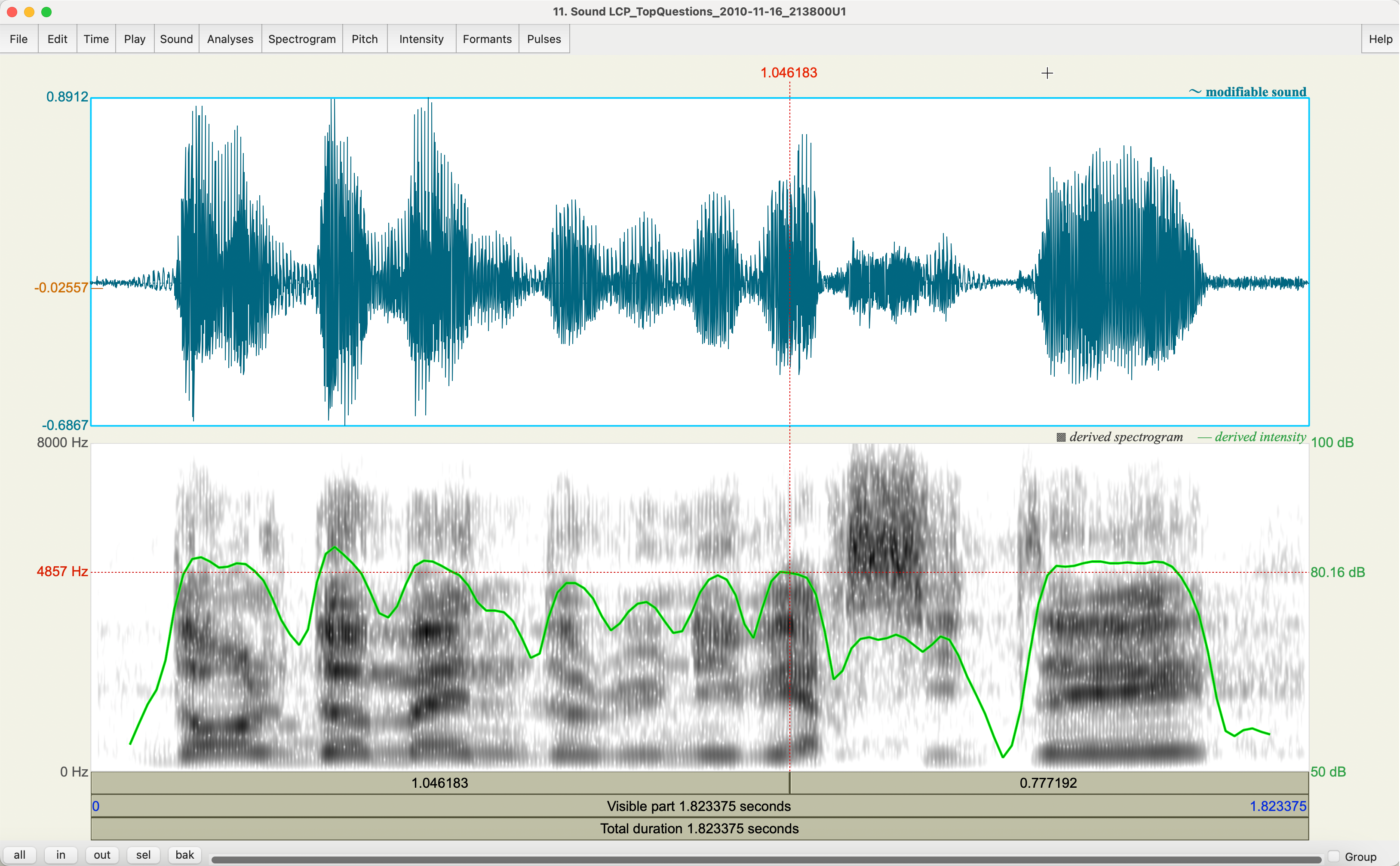
TR said,
April 19, 2024 @ 11:18 am
So why it is always the second /i/ that's devoiced and not the first?
Jarek Weckwerth said,
April 19, 2024 @ 12:04 pm
@ TR The second one is surrounded by voiceless consonants.
Y said,
April 19, 2024 @ 12:49 pm
I had someone tell me of hearing in Québec, some thirty years ago, [sapsar e], presumably for "ça bizarre, eh?" In addition to the devoicing of the /i/, there's also the devoicing of the surrounding consonants, and the strange grammar: I would have expected "ça, c'est bizarre" or such. Or could it have been c'est with a lowered vowel?
Philip Taylor said,
April 19, 2024 @ 2:35 pm
Fairly sure (tho' it is many years since I was last there) that trailing "eh ?" is almost a hallmark of Canadian speech.
Noam said,
April 19, 2024 @ 3:53 pm
“almost”? How did Canada get its name? They got a scrabble tile bag and started pulling out letters. C, eh? N, eh? D, eh?
See also “Strange Brew”
Chris Button said,
April 19, 2024 @ 9:31 pm
This discussion makes me think of how you apparently (haven't heard it myself) get reductions to schwa in unstressed syllables in some varieties of Mexican Spanish, which is somewhat unexpected relative to most other varieties of Spanish.
David Marjanović said,
April 20, 2024 @ 5:08 am
It dawns on me that this is the same phenomenon as prepausal /i e o/ becoming [iç eç ox̞ʷ] in Macro-Parisian French.
Chris Button said,
April 20, 2024 @ 6:49 am
@ David Marjanović
I think you are missing a voiceless diacritic under the vowel symbols (or maybe they're just not displaying properly)
Mark Liberman said,
April 20, 2024 @ 7:01 am
@David Marjanović: "It dawns on me that this is the same phenomenon as prepausal /i e o/ becoming [iç eç ox̞ʷ] in Macro-Parisian French."
Certainly related!
Though it's not the same as the "oui aspiré", which is ingressive…
Chris Button said,
April 20, 2024 @ 7:02 am
Which is why décidément is interesting because the following consonant is d rather than t.
I still think accent/stress is playing a role too. Hence the déci.dément syllable break almost sounding like dest.ément
Andreas Johansson said,
April 20, 2024 @ 7:27 am
Hadn't heard of "oui aspiré", but people from northern Sweden are noted for pronouncing ja "yes" ingressively.
David Marjanović said,
April 20, 2024 @ 7:51 am
No; I can't say when exactly the voice gives out, but it's still present at the beginning of each of these complexes.
Chris Button said,
April 20, 2024 @ 8:53 am
I certainly agree that the voiceless symbol is abused for when partially devoiced would be more appropriate. Not just here, but with "voiceless sonorants" (actually partially still voiced) in say Burmese (and even reconstructions of Old Chinese)